#fifth sunday after pentecost
Text
The Solemnity of Sts Peter and Paul, The Visitation of Our Lady and Memorials of the Saints - 2 July
The Solemnity of Sts Peter and Paul, Apostles and Martyrs
The Feast of the Visitation of Our Lady, instituted in 1385 by Pope Urban IVhttps://anastpaul.com/2018/05/31/the-feast-of-the-visitation-of-the-blessed-virgin-mary-31-may/AND:https://anastpaul.com/2017/05/31/feast-of-the-visitation-of-the-blessed-virgin-mary-31-may/
The Fifth Sunday after Pentecost
Notre Dame de la Visitation / Our Lady…
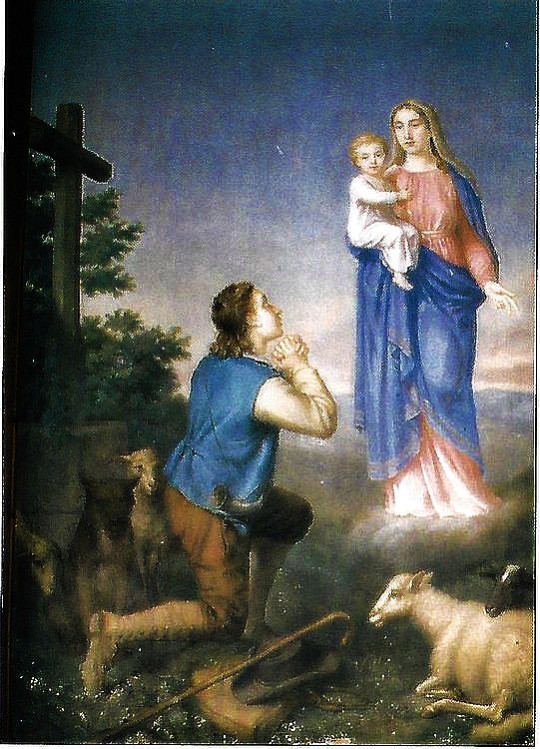
View On WordPress
#blpeterofluxembourg#feastofthevisitation#ourladyofthevisitationlescure#saints2july#servantofgodbernardofquintavalle#stbernardinorealino#stsprocessusand martinian#stswithin
2 notes
·
View notes
Text
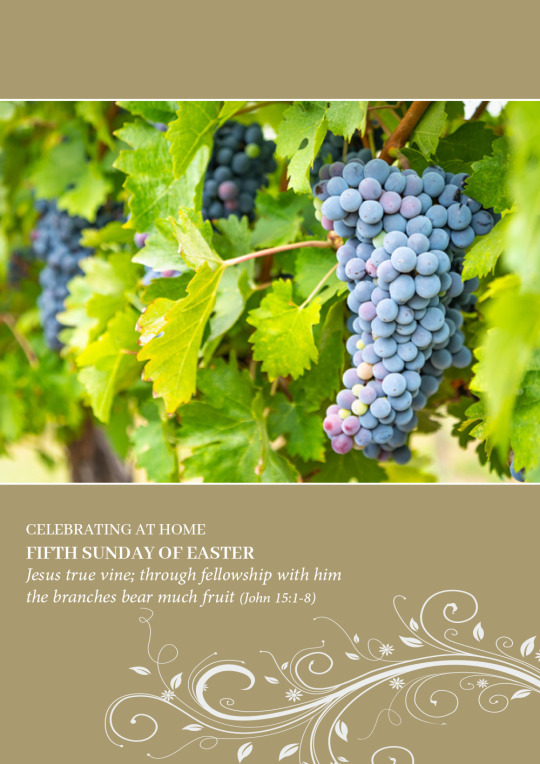
Download #CelebratingAtHome for the Fifth Sunday of Easter at
https://carmelites.org.au/celebratingathome
Jesus, true Vine, bearing fruit in us
We are still on the Easter journey. After the three day roller-coaster of emotions - from Jesus’ supper with his disciples, through trial and crucifixion, to the wonder of the women at the empty tomb - we now prepare ourselves to celebrate the coming of the Holy Spirit at Pentecost.
During these fifty days, our journey is steadied and enlightened by the words of the First Letter of St John. It has a central message made clear in today’s reading: we are asked to believe in Jesus and love one another. We are then assured that we are not alone in this challenge: “We know that he lives in us by the Spirit that he has given us.”
The poet Gerard Manley Hopkins echoes this in As Kingfishers Catch Fire:
“For Christ plays in ten thousand places,
Lovely in limbs, and lovely in eyes not his.”
This idea of Christ living within us is explored in today’s Gospel where Jesus likens himself to the “true vine.” He tells us: “Whoever remains in me, with me in him, bears fruit in plenty.”
Through the gifts of the Holy Spirit we can hold Christ within us, not only in our thoughts, our ideas, our actions, but deep within ourselves, in our souls and in our hearts. We are helped by prayer and by reflecting on the words of scripture, maybe meditating on the images, or by spending time with the phrases that we particularly notice. Or we can sit still and simply open our hearts and listen. Jesus says: “If you remain in me and my words remain in you …”
#lectiodivina#scripture#catholic#christianity#carmelite#carmelites#prayer#faith#spirituality#kingdomofgod#goodnews#godslove#forgiveness#peace#hope#love#courage#goodshepherd#easter#gospel#jesus#christ#truth#holyspirit#lightofchrist#salvation#resurrection
1 note
·
View note
Text
The Last Sunday of the Church Year, 2023 – Separate the Sheep and the Goats (Service, Audio Only)
Title: The Twenty-Fifth Sunday After Pentecost, 2023 – Separate the Sheep and the Goats
Speaker: Rev. James Redmann
We invite you to worship with us. See our contact page for directions.
Listen to the Service
Scripture Lessons
The First Reading: Ezekiel 34:11-16, 20-24
The Epistle: 1 Corinthians 15:20-28
The Holy Gospel: Matthew 25:31-46
Donate
If you would like to help spread the good…
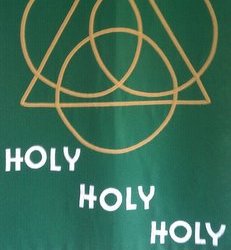
View On WordPress
#believe#bible#Christ#christianity#church#Faith#forgiveness#God#Grace#Heaven#Holy Spirit#hope#Jesus#love#Pentecost#pray#prayer#resurrection#Rev. James Redmann#salvation#Savior#Sermon
1 note
·
View note
Text
Sermon for Twenty-Fifth Sunday after Pentecost (11/19/23)
Primary Text | Zephaniah 1:7, 12-18
------------------------------------------------------------
Dear People of God,
The word of God storms up not against trifling, little, and insignificant things. It assails kingdoms, great kings, nations and peoples (Luther paraphrase). It attacks the very mechanisms of the world—how it operates, how it flows, how it goes. Money makes the world go ‘round, they say. This world kills. Murders. This world, and I mean the old world—not the world to come. This present world, if it can make a buck off of you, it doesn’t care what happens to you after that. Even if in the process piles of people starve, freeze, get cancer, or become deathly poor—the world thinks: “No matter. The most important thing took place—money was made, someone is drinking a fine wine tonight.” This present world is a world that will eat you up and spit you out, a world that will let you fall through the cracks—unless there’s a dime in it. (pause) Terrible and tragic things happen every day without number. And after a tragedy occurs the world is quick to move on because now there is new wealth to be acquired, new possessions to be had—but at the cost of human blood, human suffering; blood and suffering from which we all benefit. Turns out the almighty God has a bone to pick with this world. This should not come as a surprise. So the Lord sent his prophet Zephaniah to speak God’s judgment into the world. He warns the nations, saying, “The great day of the LORD is near, near and hastening fast; the sound of the day of the LORD is bitter…That day will be a day of wrath, a day of distress and anguish, a day of ruin and devastation, a day of darkness and gloom, a day of clouds and thick darkness…Neither their silver nor their gold will be able to save them on the day of the LORD’s wrath” (Zeph. 1:14-16, 18). Dear people, a reading like Zephaniah is uncomfortable. As it should be. It serves as a warning to all people, including you and me, insofar as we are still attached to the old world and the old ways---things that do not come from the kingdom of heaven. God will make his wrath, his displeasure, the fire of his passion known.
This blows out our sensitivity meter though. The day of the LORD has wrath? God has wrath? But isn’t God a God of love? It is impossible for God to be angry. And if he is, he wouldn’t do anything about it. We say these things because we do not like to think the Most High God, whom we can’t control, not only gets angry but exercises his anger. So we seek to shut God up in a little box. Tame him. Make him safe, and palatable. We put God in a box, stow him away nice and neatly—and we’ll take him off the shelf if we feel like it. I say this now, you do not want this wet noodle god, this weak apple sauce god. This sort of wrathless god is like drinking soda that’s been in your car a few days—flat and disposable. This prepackaged God, if he’s even there, is just there for the warm fuzzies but never actually gets around to doing anything. That’s what Zephaniah is getting at when he prophesies, “At that time I will search Jerusalem with lamps, and I will punish the people who rest complacently in their dregs, those who say in their hearts, “The LORD will not do good, nor will he do harm” (1:12). Dear people of God, it is precisely that God is a God of love that he also has wrath. Which truly he can be compared to a momma bear protecting her cubs. A God who does not have wrath is also one who does not care what happens to you. And who are we anyway to tell God how to think or what to do. For in fact, God does not like the status quo of the world—where the great are lifted up and the lowly are slammed to the ground on the daily. That kind of a world is going to meet its full, terrible end. This will be ruin and devastation for those who have trusted in this world rather than in the LORD God. No gold, silver, or money will save such a one on that day—even if for now gold, silver, and money make people feel secure in themselves apart from God. But what a relief the great Day of the LORD will be for those who shed their blood and suffered and died under the mechanisms of this present world.
So we learn that God is not going to tweak around the edges. Make some minor changes to the world here and there. No. He will sweep away everything from the face of the earth, and make a new earth, along with a new heaven. And at this time earth and heaven will be one and the same. The LORD has already begun making all things new the day Jesus rose from the dead. His children, you and I, are therefore not children of the darkness. We are children of the light and of the day. For when the great day of the Lord with its wrath arrives and judges the world for the evil that it is, you will learn firsthand that God has destined you not for wrath but for obtaining salvation through our Lord Jesus Christ, who died for you. In this world to come people will not slip through the cracks. No one will seek their own advantage over and against another. For God will hold you in his strong hand forever. The future new world God brings to you now is brought you in the words of the gospel—God’s enormous, enduring promise: I forgive your sins on account of Christ. His suffering, his death and resurrection is what makes you new and make you children of the light through faith. It is not your own doing. (pause) In the Small Catechism we encounter a divine promise. This promise is for you, for you, for you: “On the Last Day the Holy Spirit will raise you and all the dead and will give to you and all believers in Christ eternal life. This is most certainly true” (SC 2:6).
0 notes
Text
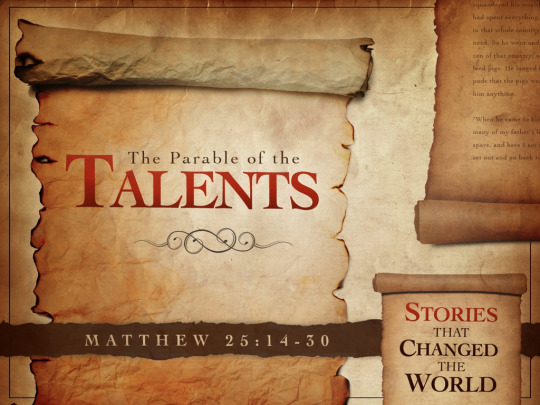
Brothers and sisters, my sermon for this Twenty-Fifth Sunday after Pentecost is posted on Facebook at: https://facebook.com/vicartom.steers
God’s blessings,
Pastor Tom Steers
Christ the Saviour Lutheran Church, Toronto
0 notes
Text
Living Mercy
John Sawyer
Bedford Presbyterian Church
8 / 20 / 23 – 12th Sunday after Pentecost/Proper 15
Romans 11:1-2a, 29-32
Genesis 45:1-15
“Living Mercy”
(Moral Courage and Holy Mystery)
Brothers are supposed to get along – at least that’s what I’ve been told. Brothers are supposed to get along, but they don’t always.
I was in the eleventh grade. My little brother was in the fifth grade. We had just moved to a new town, didn’t know many people, and didn’t have anywhere to go (and no car to go anywhere in, anyway). It was raining outside. Both of our parents were at work. We had one grainy working channel on our ancient TV, we had each other, and we had all day. . . stuck in the house. . . together. We also had access to our dad’s collection of rubber bands, of which my brother availed himself and began to shoot at me with his finger. He was a pretty good shot. I was annoyed, so I went to my room to read a book. I locked the door, but that only gave my brother a chance to knock on it repeatedly and wiggle his fingers underneath until I got mad and chased him around. The final straw came when I needed to use the bathroom and my brother locked me out of the part of the house with the bathrooms. I yelled something like, “Open this door or else!” “Or else what?!?” my brother yelled back. And then I kicked the door – busting it open and leaving a big dent in it. The look of shock on my brother’s face was priceless. He didn’t mess with me after that. In fact, it took some time, but all these years later, my brother and I are pretty much best friends.
In today’s story from the Book of Genesis, we find a story about some brothers. Just in case you’re not familiar with the story of Joseph and his brothers, you might remember that we have spent some time this summer with the stories of Abraham, Isaac, and Jacob. Abraham has one son, Isaac. Isaac has two sons, Jacob and Esau. And Jacob? Well, Jacob ends up having twelve sons: Reuben, Simeon, Levi, Judah, Dan, Naphtali, Gad, Asher, Issachar, Zebulun, Joseph, and Benjamin. Out of all of his sons, Jacob loves Joseph the most, so he gives Joseph a colorful robe with sleeves. This special attention goes to Joseph’s head and he starts to annoy his ten older brothers. Eventually, they get fed up with Joseph and they beat him up, throw him in a pit, and sell him to some traveling merchants who are going down to Egypt.
The story of Joseph is long and detailed, but here are the highlights: Joseph’s brothers sell him into slavery. But God is mysteriously at work in Joseph’s life, lifting him up from slavery and imprisonment to become second only to the Pharaoh – the king of Egypt. When there is a famine, Joseph uses his God-given administrative skills to avert a crisis in Egypt. There is enough food for everyone and they even have some food left over to sell to foreigners, including Joseph’s hungry brothers who have traveled down to Egypt to find food. Of course, all these years after Joseph was beaten and sold by his brothers, they don’t even recognize their younger brother as this rich and powerful person who has had them arrested and brought before him.
Put yourself in Joseph’s shoes: the people who did you wrong, the people for whom you have been carrying a grudge all these years are right there in front of you. You have the power not just to kick the door in on them, but absolutely destroy them. What do you do? I mean, brothers are supposed to get along, but sometimes they don’t. People are supposed to get along, but sometimes we don’t.
Of course, it might seem old fashioned, or wishful thinking on my part, or maybe even counter-cultural to say that “people are supposed to get along,” because I’m under the impression that there are plenty of people who seem to be okay with not getting along. In a recent article in The Atlantic magazine, called “How America Got Mean,” David Brooks writes that the stories we tell ourselves as to why our culture is “mean,” is that social media, or the rise of despair and hatred, or economic inequality, or social isolation are each to blame. And, yes, each of these has had an effect on us. But, as Brooks writes,
The most important story about why Americans have become sad and alienated and rude, I believe, is also the simplest: We inhabit a society in which people are no longer trained in how to treat others with kindness and consideration. Our society has become one in which people feel licensed to give their selfishness free rein. The story I’m going to tell is about morals. In a healthy society, a web of institutions — families, schools, religious groups, community organizations, and workplaces — helps form people into kind and responsible citizens, the sort of people who show up for one another. We live in a society that’s terrible at moral formation.[1]
Now, before you say, “Duh, John, tell us something we don’t know!” I want to remind you where we are: a little church on a hill – a place that for nearly 275 years has had, as one of its goals, some kind of moral formation. I’m talking about the morals that we find in the ancient words of scripture, in the life and example of Jesus Christ, and in the centuries of moral formation that the historic church has sought to provide. Yes, the church has had an influence on culture, but Brooks is clear that religion – or religious moral teaching – is not always a cure-all for what ails us. As Brooks writes,
. . . the emphasis on morality didn’t produce perfect people. Moral formation doesn’t succeed in making people angels — it tries to make them better than they otherwise might be.
Furthermore, we would never want to go back to the training methods that prevailed for so long, rooted in so many thou shall nots and so much shaming, and riddled with so much racism and sexism. Yet a wise accounting should acknowledge that emphasizing moral formation meant focusing on an important question — what is life for? — and teaching people how to bear up under inevitable difficulties. A culture invested in shaping character helped make people resilient by giving them ideals to cling to when times got hard.[2]
Times had been hard for Joseph, and yet he somehow still clung to a Holy and merciful ideal instead of clinging to resentment.
Just so you know, the story of Joseph takes place before the arrival of the 10 Commandments – God’s holy list of “thou shall nots.” And surely there must have been some kind of rule in that day and age – spoken or unspoken – that “thou shall not beat up your own brother, steal his colorful robe, sell him into slavery in Egypt, and go home holding the robe stained with animal blood, telling your father that your younger brother Joseph is dead.”[3] It was wrong what they did to Joseph and he knows this (and, deep down, they know it, too). But somehow, Joseph also knows that it would be wrong for him to destroy his brothers. Somehow, he still has some higher ideals to which he has been clinging ever since that awful act in his past. In the moment, his brothers don’t recognize him and have no idea the rage and fury that this fancy Egyptian-looking person can bring down upon them. If he calls for the guards and if he says the word, his brothers could all be killed. But Joseph chooses mercy and as he reintroduces himself to his brothers, he brings God into the story, as Eugene Peterson translates:
I am Joseph your brother whom you sold into Egypt. But don’t feel badly, don’t blame yourselves for selling me. God was behind it. God sent me here ahead of you to save lives. There has been a famine in the land now for two years; the famine will continue for five more years—neither plowing nor harvesting. God sent me on ahead to pave the way and make sure there was a remnant in the land, to save your lives in an amazing act of deliverance. So you see, it wasn’t you who sent me here but God. He set me in place as a father to Pharaoh, put me in charge of his personal affairs, and made me ruler of all Egypt.[4]
In other words, “It might sound crazy, but God was part of it all – at work for good. Somehow, God made something good out of this awful thing that you did that most people would never forget or forgive. I don’t blame you, though, because God did something amazing – turning this whole awful mess around.”
For the record, this is one of the amazing things that God always seems to be doing – taking some awful mess and turning it around. Time and time again in the Bible, there are so many stories of redemption, and reversal, and even resurrection in which God chooses blessing over cursing, life over death, and mercy over condemnation.
Contrary to what you may have heard, our God is “merciful and gracious, slow to anger, and abounding in steadfast love.”[5] This ancient description of God appears multiple times in the Hebrew Bible. And in the New Testament, we see Jesus Christ as the incarnation – the merciful, and gracious, and slow to anger, and abounding in steadfast love embodiment of these words.
We see this idea in today’s reading from Paul’s letter to the Romans. Paul, who is descended from Benjamin, Joseph’s younger brother, writes, “All have been imprisoned in disobedience so that God may be merciful to all.” (Romans 11:32). Or, again, as Eugene Peterson translates,
God makes sure that we all experience what it means to be outside so that he can personally open the door and welcome us back in. Have you ever come on anything quite like this extravagant generosity of God, this deep, deep wisdom? It’s way over our heads. We’ll never figure it out.
Is there anyone around who can explain God? Anyone smart enough to tell him what to do? Anyone who has done him such a huge favor that God has to ask his advice? Everything comes from him; Everything happens through him; Everything ends up in him. Always glory! Always praise! Yes. Yes. Yes.[6]
To put it another way, “We all know how it feels to be on the outside, but God – in God’s inexplicable mercy – graciously opens the door and welcomes us in. Why? How? We’ll never figure it out, we’ll never fully deserve it, but God is merciful. . . Yes. Yes. Yes.”
So, what about us? If mercy is one of the calling cards of the God we believe in, what is the church to do? What sort of moral example is God giving us and calling us to emulate. . . to live? If we supposedly live in a society that is terrible at moral formation then what if we began with mercy – living some of the mercy that we have been given?
What sort of moral courage does it take to show mercy in this world? As David Brooks writes,
Look, I understand why people don’t want to get all moralistic in public. Many of those who do are self-righteous prigs, or rank hypocrites. And all of this is only a start. But healthy moral ecologies don’t just happen. They have to be seeded and tended by people who think and talk in moral terms, who try to model and inculcate moral behavior, who understand that we have to build moral communities because on our own, we are all selfish and flawed. Moral formation is best when it’s humble. It means giving people the skills and habits that will help them be considerate to others in the complex situations of life. It means helping people behave in ways that make other people feel included, seen, and respected. That’s very different from how we treat people now—in ways that make them feel sad and lonely, and that make them grow unkind.[7]
In other words, moral formation humbly begins with mercy. For far too long, the message that our culture has received from the not-so-humble loudest voices who call themselves Christian is that the Christian message is not one of mercy. This could not be farther from the truth of who God is, though, and who we are called to be. And, while it may be old-fashioned, or wishful thinking, or countercultural, having moral courage begins with living lives of mercy.
Church, if we are to have any relevance, any impact – and, perhaps, any future – may we be known by the mercy we live, clinging to mercy even when it’s hard, even if we see little to no reward, even if we feel we have nothing to gain. The mercy we offer our enemies, and one another, and even ourselves is an amazing and Holy act of deliverance from the harsh reality of what is to the gracious blessing of what God intends for us and for all the world.
So, friends, give mercy. . . live mercy. And may your mercy – which is really God’s mercy at work in and through you – be a blessing.
In the name of the Father, and of the Son, and of the Holy Spirit. Amen.
--------
[1] https://www.theatlantic.com/magazine/archive/2023/09/us-culture-moral-education-formation/674765/.
[2] David Brooks, ibid.
[3] See Genesis 37.
[4] Eugene Peterson, The Message: Numbered Edition (Colorado Springs: NAV Press, 2002) 73. Genesis 45:4-8.
[5] See Psalm 86:15, Exodus 33:19, Exodus 34:6, Numbers 14:10, Psalm 103:8, Psalm 145:8.
[6] Eugene Peterson, 1556-1557.
[7] David Brooks, ibid.
0 notes
Text
Rev. Larry Weeks’ Sermon for Sunday, July 2, 2023
Download Sermon Audio (3.4Mb MP3)
Revised Common Lectionary for the Fifth Sunday after Pentecost
0 notes
Text
Fifth Sunday after Pentecost July 2, 2023 10 am
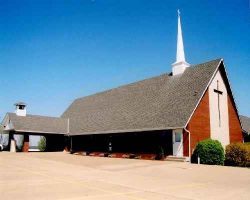
Read the full article
0 notes
Text
7-2-23 Fifth Sunday after Pentecost
View On WordPress
0 notes
Text
Nossa Senhora dos Remédios / Our Lady of Remedies, (Lamego, Portugal) 6th Century) and Memorials of the Saints - 13 November
Nossa Senhora dos Remédios / Our Lady of Remedies, (Lamego, Portugal) 6th Century) and Memorials of the Saints – 13 November
Nossa Senhora dos Remédios / Our Lady of Remedies, (Lamego, Portugal) 6th Century) Also known as – Nossa Senhora da Gruta / Our Lady of the Grotto – 14 November:HERE:https://anastpaul.com/2021/11/14/the-twenty-fifth-sunday-after-pentecost-nossa-senhora-dos-remedios-our-lady-of-remedies-lamego-portugal-6th-century-and-memorials-of-the-saints-14-november/
All Saints of the Carmelite Order:On this…
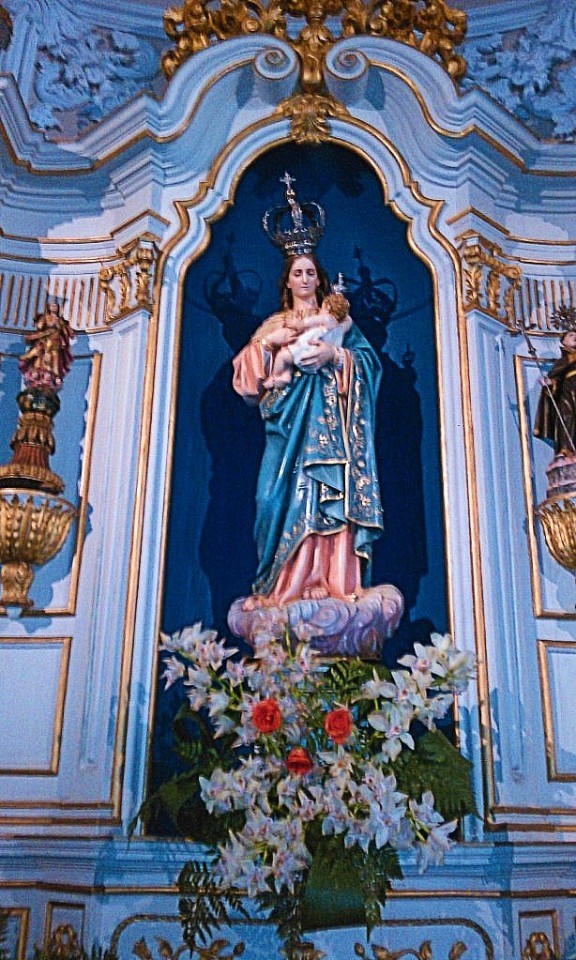
View On WordPress
#bljohnlicci#ourladyofremediesportugal#saints14november#stjosaphat#stjosephpignatelli#stlaurenceotoole#stseraphina#stsiard
3 notes
·
View notes
Text
Sermon: Won't You Be A Neighbor?
"Will we stop wondering who we can be a neighbor and focus on how we can be a neighbor?" #sermons
Listen to the Sermon Podcast, recorded July 10, 2022.
Luke 10:25-37
Fifth Sunday After Pentecost
July 10, 2022
First Christian Church
Mahtomedi, MN
There is an episode of the old TV series the Twilight Zone called “The Monsters Are Due At Maple Street.” It starts on a normal weekend afternoon on a suburban street when out of nowhere, the power cuts out and when I saw it cuts out, everything…
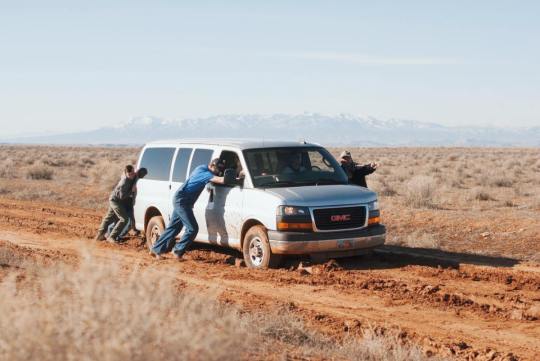
View On WordPress
0 notes
Text
The Last Sunday of the Church Year, 2023 – Separate the Sheep and the Goats (Sermon, Audio Only)
Title: The Twenty-Fifth Sunday After Pentecost, 2023 – Separate the Sheep and the Goats
Speaker: Rev. James Redmann
We invite you to worship with us. See our contact page for directions.
Listen to the Sermon
Scripture Lessons
The First Reading: Ezekiel 34:11-16, 20-24
The Epistle: 1 Corinthians 15:20-28
The Holy Gospel: Matthew 25:31-46
Donate
If you would like to help spread the good…
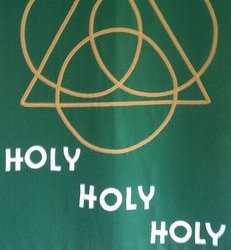
View On WordPress
#believe#Christ#Faith#forgiveness#God#Grace#Heaven#Holy Spirit#hope#Jesus#love#Pentecost#pray#prayer#resurrection#Rev. James Redmann#salvation#Savior#Sermon
1 note
·
View note
Text
Sermon for Fifth Sunday after Pentecost
Sermon for Fifth Sunday after Pentecost
Colossians 1:1-14 What Are They Saying About Us
There is a human activity that is easily engaged in, can be almost addictive, can seem somewhat harmless, but can damage lives and destroy relationships. We call it gossip. Sadly, every one of us is susceptible to it. What is worse is that it tends to magnify and intensify as it spreads from one person to another. It is a very effective sin…
View On WordPress
0 notes
Note
What holidays do you think they would celebrate in Columbia?
Holidays In Columbia
Holidays with a * denote they are personal headcanons of mine. Holidays without asterisks are real-world examples. Italicized text is further detail on the holiday at hand.
January
New Years Day (Jan 1st) - Celebrates the beginning of a new year. Benjamin Franklin’s Birthday (Jan 17th) Celebrates Franklin’s birthday as a canonized saint in the religion of the Founders, the ruling political party of Columbia.
February
Valentine’s Day (Feb 14th) Celebrates lovers showing their affection and care for each other. George Washington’s Birthday (Feb 22nd) Celebrates Washington’s birthday as a canonized saint in the religion of the Founders, the ruling political party of Columbia. Mardi Gras {Renamed Shrove Tuesday}(Feb 25th) Celebrates the day before Ash Wednesday, which marks the start of Christian Lent season leading up to Easter. The Black and Hispanic communities still call it Mardi Gras, but to do so is considered lower-class by most Columbian citizens. Leap Year Day (Feb 29th) Celebrates the rare day in a year in which an extra day is added to the calendar.
March
St. Patrick’s Day (Mar 17th) Celebrates St. Patrick, one of Ireland’s patron saints, who ministered Christianity in Ireland during the fifth century. While not officially recognized by the ruling class of Columbia, the Irish population of the city still acknowledge the day.
April
April Fools Day (Apr 1st)Celebrates the turning of the pre-Gregorian calendar by trying to play a practical joke on a victim who becomes known as an April Fool. Good Friday (Apr 10th) Celebratesthe Friday before Easter, the day on which Christians annually observe the commemoration of the Crucifixion of Jesus Christ. *Fallen Soldier Day (Apr 11th) Celebrates the lives of Columbian officers lost in the line of duty. Inspired by the killing of Columbian police Chief Poole by the Vox Populi, on the same date in 1906. Easter Sunday (Apr 12th) Celebrates Jesus Christ’s resurrection from death, as written in the Christian bible. Thomas Jefferson’s Birthday (Apr 13th) Celebrates Jefferson’s birthday as a canonized saint in the religion of the Founders, the ruling political party of Columbia. *Emancipation Day (Apr 15th) A Fraternal Order of the Raven holiday which celebrates the killing of Abraham Lincoln at the hands of John Wilkes Booth. *Prophet’s Day (Apr 19th) Celebrates the birthdate of Father Comstock, and by extension, Booker DeWitt.
May
Cinco de Mayo (May 5th) Celebrates the date of the Mexican army’s 1862 victory over France at the Battle of Puebla during the Franco-Mexican War. While not officially recognized by the ruling class of Columbia, the Mexican population of the city still acknowledge the day. Memorial Day {known as Decoration Day}(May 25th) Celebrates the lives of everyone who has died serving in the armed forces. Pentecost (May 31st) Celebrates the descent of the Holy Spirit on the disciples of Jesus after his Ascension, held on the seventh Sunday after Easter.
June
July
*Columbian Independence Day (July 6th) Celebrates the establishment of Columbia as an country separate from the United States of America.
August
*Origins Day (Aug 3rd) Marks the date Columbus set sail and subsequently “discovered” the Americas. Frequently taught as one of the first steps toward the birth of Columbia.
September
*Day of Yellow Secession (Sept 7th) Celebrates the end of the Boxer Rebellion. The name is just as bad as you think it is.
October
*Lamb’s Day (Oct 8th) Celebrates the proclamation of the Lamb in Columbia.*Fair Day (Oct 30th) Celebrates the final day of the 1893 Chicago World Fair, during which Columbia was revealed to the world. *Lutece Memorial Day (Oct 31st) Celebrates the life and achievements of the Lutece Twins, after their death at the hands of Jeremiah Fink’s tampering. Halloween {known as All Saint’s Eve} (Oct 31) Celebrates the tradition of Samhain, when people would light bonfires and wear costumes to ward off ghosts. More religiously angled in Columbia, with focus on dressing as Columbian heroes or religious figures and reciting either scripture or Founder doctrine for goodies.
November
Veteran’s Day (Nov 11th) Celebrates those who previously served as Columbian military or police. Thanksgiving (Nov 25th) Celebrates the harvest and other blessings of the past year. It is not uncommon for especially observant households to leave an empty table setting for Lady Comstock.
December
Christmas (Dec 25th) Celebrates the birth of Jesus Christ, observed primarily on December 25 as a religious and cultural celebration among billions of people around the world. Comstock, not Santa, delivers gifts, with the help of his Stephin Fetchit-esqe helpers and the divine ability to see if a child’s been behaved or not. *Day of Red Conquest (Dec 29th) Celebrates the “victory” of the American soldiers at Wounded Knee. New Years Eve (Dec 31st) Celebrates the last day of the year.
76 notes
·
View notes
Text
50 Days of Rejoicing

Easter is more than one day at the end of Holy Week, it is an entire season with celebrations of the resurrection, stories of the time the apostolic witnesses spent with the Risen Christ, and joy in the promise of new life with the celebration of Baptisms and Affirmations of Baptism. It’s common for fasting and other forms of penitence to be set aside during this time, since we think of every day in the season as Sunday- a day of new life and resurrection.
The Great Vigil
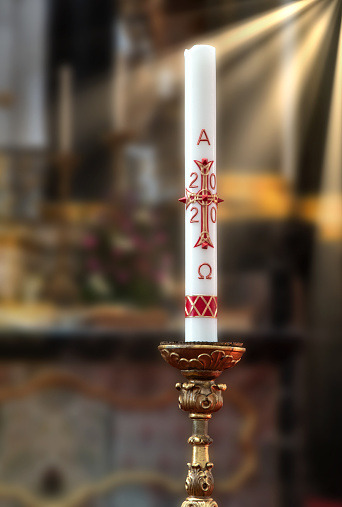
Saturday night sits at the hinge between the sorrows of the Passion and the hope that has sustained God’s people through generations. Easter Vigil includes the blessing of the Paschal Candle, an Easter fire, a celebration of Baptism (and sometimes several Baptisms!), and the very first proclamation of the resurrection in worship with shouts of Alleluia. We hear the resurrection story from the Gospel of John. (John 20:1-18)
Easter Morning

With shouts of “Christ is Risen!” echoed by the assembly “He is risen indeed, Alleluia!”, Easter morning tells the story of the resurrection through the lens of the year’s Gospel. This year we will hear the testimony from Mark (Mark 16:1-8) with the command to go forth into the place where mission begins to find the Risen One.
Easter Evening

Sunday night is set aside for the reading and reflection on the story of two disciples walking home to Emmaus after learning of the death and burial of Jesus. This story from Luke 24:13-49 is a powerful reminder of the places where we can encounter the living Christ, even now: in sacred story, in caring for one another, and in the breaking of bread as we remember Jesus.
Easter 2

The second Sunday in Easter tells the story of the Apostle Thomas (John 20:19-31) and his longing to see the wounds and scars that Jesus bore so he could trust in the resurrection. Jesus celebrates faith, but is willing to let Thomas touch the scars to awaken such faith. The Apostle cries out, “My Lord and My God.”
Easter 3
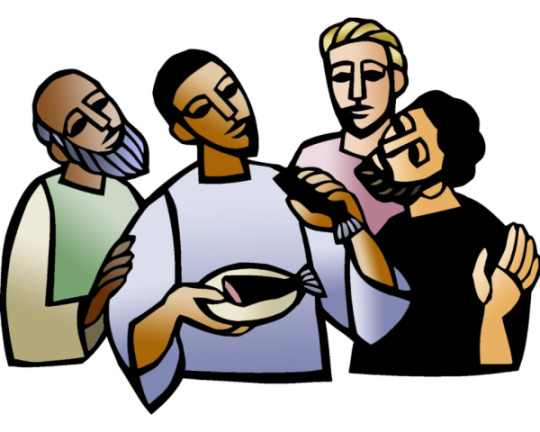
The third Sunday lifts up a story from Luke 24:36b-48 where the reality of the resurrection comes through the act of eating together. Jesus dines with friends, a hallmark of his earthly ministry and demonstrates that he has a real body, not a ghostly one.
Easter 4

Sometimes called Good Shepherd Sunday, this week always features some part of the Good Shepherd discourse from the Gospel of John. This year we’ll hear John 10:11-18 as Jesus describes the work of the Passion and Resurrection as the work of a loving shepherd protecting the flock from dangerous predators.
Easter 5

The fifth Sunday talks about our integration into the life of Christ. We are like the grafted branches that are added to a life-giving vine. The vine supplies the nutrients for growth and the branches blossom into fruitful yields.
Easter 6

The second to last Sunday brings us a story from John 15:9-17, which is a farewell discourse that Jesus originally delivers to his core disciples as he prepares for his death. Now we hear it as a preparation for the end of Eastertide, the departure of the resurrected body, and guide for how to be in the world as the embodiment of Christ.
Ascension Thursday
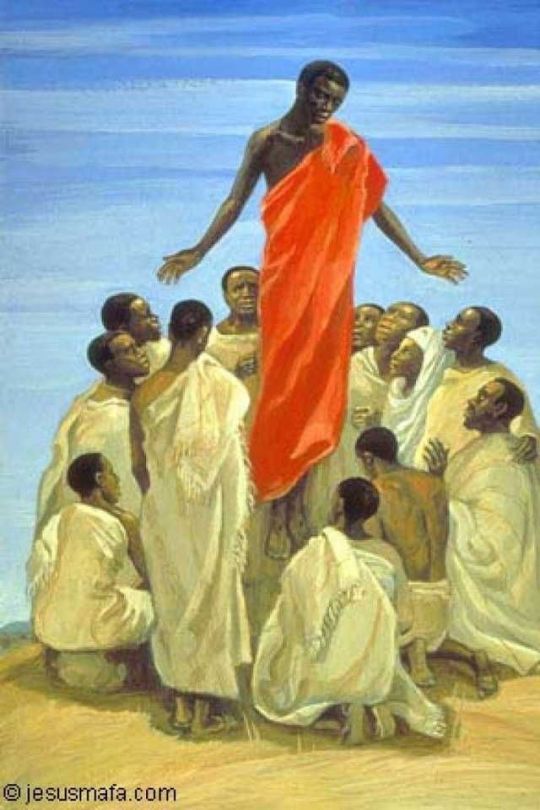
Forty days after Easter Sunday, we hear the story from Luke 24:44-53, where the witnesses of the Resurrection experience the departure of the physical presence of Christ in order to anticipate God’s presence in a new way. This departure left them in awe and wonder, but also in fear, since they weren’t yet sure how to be in the world without their beloved teacher.
Easter 7
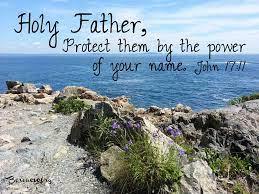
The final Sunday of Easter brings us back to the farewell discourse of John’s Gospel. Here In John 17:6-19, Jesus prays for the protection of God on this new community in it’s infancy. The new community will live in the created world, but not be controlled by the systems of power that dominate the world, and they will need divine wisdom and love to live in this in between space.
Vigil of Pentecost
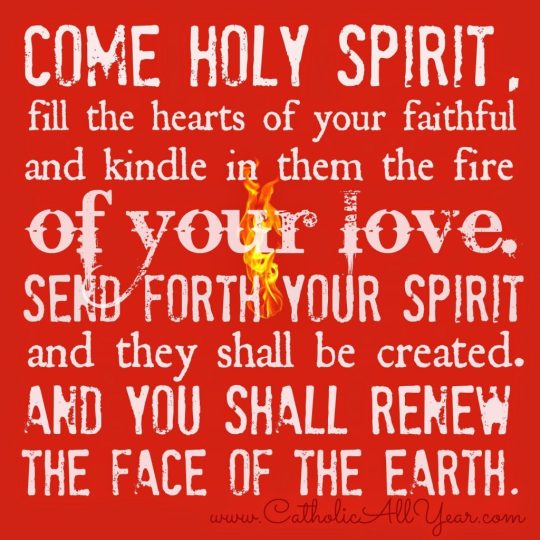
The Jewish celebration of Pentecost is a celebration of the first fruits of the harvest and also marks the 50th day after Passover, when the incredible gift of the Ten Commandments were received by Moses on Sinai.
Fifty days after Easter Sunday, we gather for a weekend of intense prayer and celebration. This evening worship is the third great Vigil or watchful waiting liturgy of the year after Christmas Eve and Easter Vigil. We gather in hope and longing that the God who drew near to us in Incarnation and Resurrection would draw near to us again in Indwelling through the gift of the Holy Spirit. We hear from John 7:37-39 how the Spirit is an ever-flowing stream that continually brings us to life.
Pentecost Sunday

On this feast day, we hear of the gift of the Holy Spirit and the energetic emergence of the Church. People are given gifts of speaking and listening, and the power of God is present in the whole body- every age, every ethnicity, every gender. We hear Jesus describing the work of the Spirit in John 15:26-27; 16:4b-15 and read the Pentecost story from Acts 2:1-21. The colors of fire remind us that the Spirit’s energy is always with us and within us, day and night, in our waking and in our dreams. This holy day also marks the transition out of Eastertide and back to Ordinary time through the rest of the year until Advent in the Fall.
1 note
·
View note
Text
Bulletin for Sunday, July 2, 2023
Download Fifth Sunday after Pentecost, 7:45 & 10 a.m. (710Kb PDF)
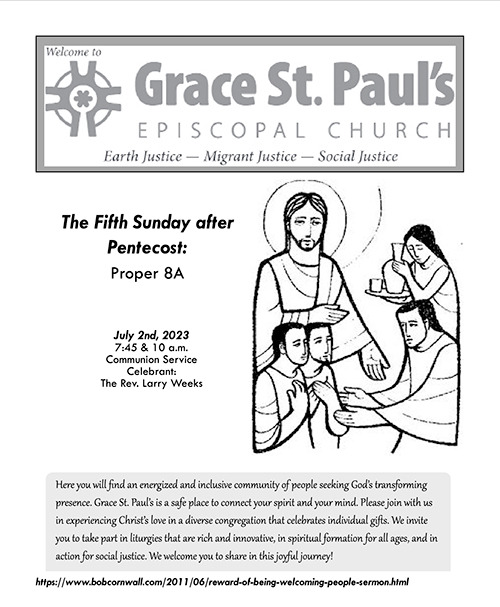
1 note
·
View note